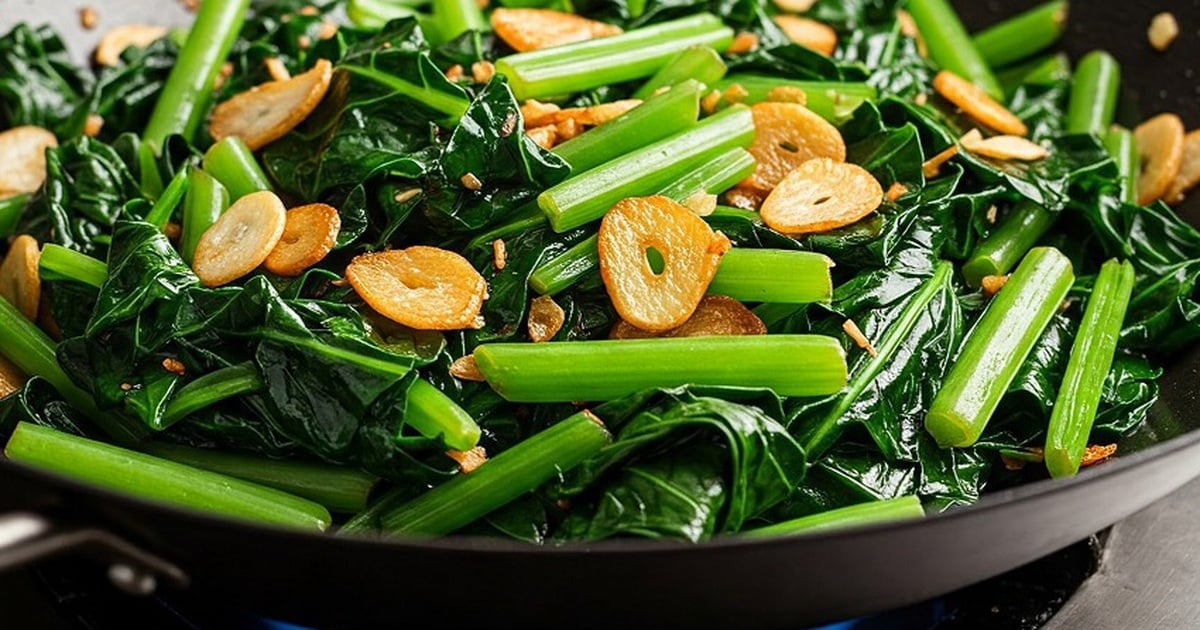Women are prone to belly fat due to hormonal changes in middle age, frequent stress, little sleep and unscientific eating habits.
An active lifestyle, eating nutritious foods and getting enough sleep can help prevent belly fat from forming. However, middle-aged women often find it difficult to stay slim like when they were young due to the following reasons.
Hormonal changes
The decline in estrogen and progesterone hormones during perimenopause leads to significant changes in the body. Specifically, women lose muscle mass, which burns fewer calories, slows down metabolism, and promotes the storage of belly fat.
Women should eat foods that provide phytoestrogen (acts similarly to estrogen). Phytoestrogen helps improve menopausal problems such as poor sleep and joint pain. Cashews, soybeans, and vegetables are high in phytoestrogen.
Soybeans are good for estrogen metabolism, reducing the risk of ovarian cancer. Isoflavones can reduce fatigue, joint pain, irritability, anxiety and vaginal dryness in menopause or the years before.

Women are prone to belly fat when they eat a lot and exercise little. Photo: Freepik
Stress
Stress can lead to hormonal imbalances and fat accumulation in the abdominal area. Women should keep their spirits up, meditate, and engage in activities they enjoy.
Stress also makes women more susceptible to acne, rashes and hives. Women also experience hair loss if they are chronically stressed for a long time. When stressed, the brain triggers the release of a series of hormones such as cortisol, which causes physiological changes. Increased cortisol over a long period of time affects the brain, executive function, and ability to concentrate.
Unbalanced diet
Eating processed, sugary, and fatty foods can add to your waistline. Women should eat more fruits and vegetables, whole grains, lean proteins, and healthy fats to reduce belly fat.
Women need plenty of vitamins, minerals and fiber from foods such as fruits and vegetables. Vitamin D deficiency leads to lower estrogen levels, causing depression, hot flashes and mood swings.
Fish, fish oil, cereals, oysters, and mushrooms are rich in vitamin D, which is good for your health. Vitamin E stimulates the production of estrogen, reducing discomfort, psychological instability, and menstrual cramps. This vitamin is abundant in nuts such as sunflowers, almonds, peanuts, and vegetable oils.
Women should limit processed foods such as bacon, sausages, fast food because they have low nutritional value and are high in calories. In addition to nutrition, exercise (cycling, walking, zumba, swimming) reduces waist size, helping women feel satisfied with their appearance.
sleep less
Sleeping less can disrupt the body's circadian rhythm, increasing the risk of obesity, kidney problems, diabetes, heart disease, and stroke. Meanwhile, getting enough sleep can have a beneficial effect on hormones. When you are well-rested, your body functions smoothly and your mood is stable.
Le Nguyen (According to Hindustan Times )
| Readers ask questions about women's health and physiology here for doctors to answer |
Source link



![[Photo] Prime Minister Pham Minh Chinh receives Mr. Jefferey Perlman, CEO of Warburg Pincus Group (USA)](https://vstatic.vietnam.vn/vietnam/resource/IMAGE/2025/4/18/c37781eeb50342f09d8fe6841db2426c)


![[UPDATE] April 30th parade rehearsal on Le Duan street in front of Independence Palace](https://vstatic.vietnam.vn/vietnam/resource/IMAGE/2025/4/18/8f2604c6bc5648d4b918bd6867d08396)



























































































Comment (0)